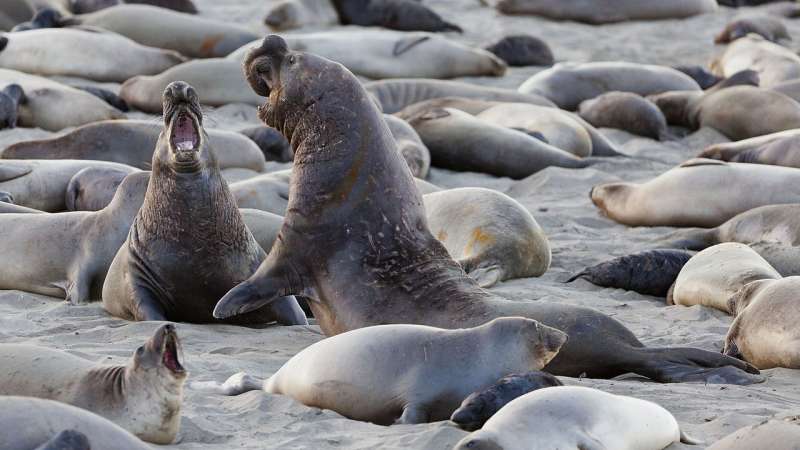Researchers propose an index for measuring "reproductive skew" across animal species

SFI External Professor Monique Borgerhoff Mulder, former Omidyar Fellow Paul Hooper, and long-time SFI collaborator Cody Ross are among co-authors on a new paper that proposes an index for measuring "reproductive skew" across animal species.
Reproductive skew reflects inequality in reproduction across individuals within a population. In a highly skewed group, a small number of individuals produce most of the offspring—male elephant seals, for example, where a few dominant males do most of the mating. In less skewed groups, such as gibbons and kangaroos, adults produce relatively similar numbers of offspring over their lifetime.
"Differences in reproductive skew are thus predicted to have wide-reaching consequences for the evolution of biological characteristics (e.g. ornamentation) as well as social and behavioral ones (stable group size, effective population size, male tenure length, sociality, and the patterning of violence and aggression)," the authors write. But to "effectively test such theory ... cross-species or cross-genera comparisons are often needed, but they have also been relatively sparse."
The new index would enable such comparisons. Like the Gini index for economic inequality, Hooper writes, the authors' multinomial index "allows inequality in groups to be compared on even grounds, even with differences in study sampling or reproductive rates."
More information: Cody T. Ross et al. The multinomial index: a robust measure of reproductive skew, Proceedings of the Royal Society B: Biological Sciences (2020). DOI: 10.1098/rspb.2020.2025
Journal information: Proceedings of the Royal Society B
Provided by Santa Fe Institute



















